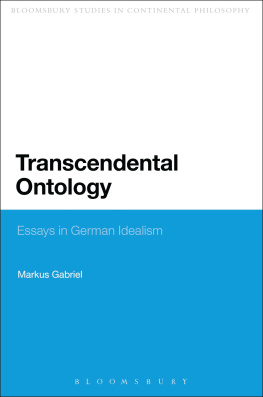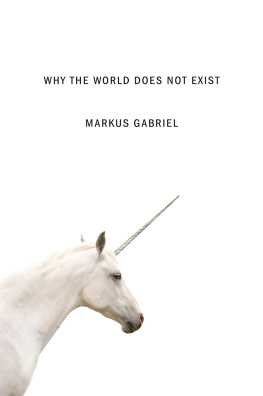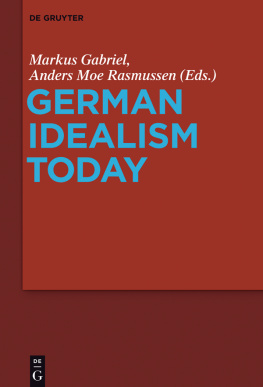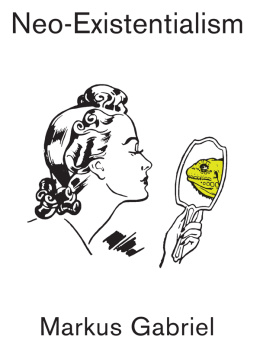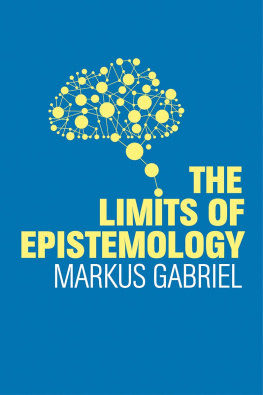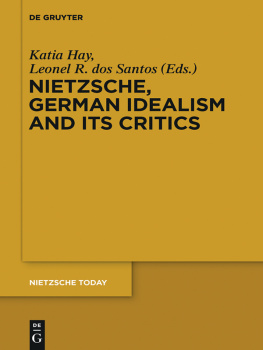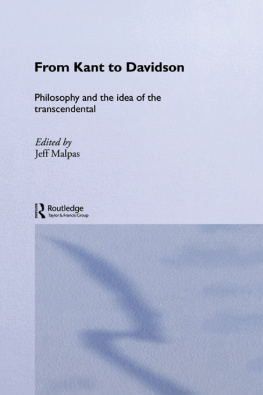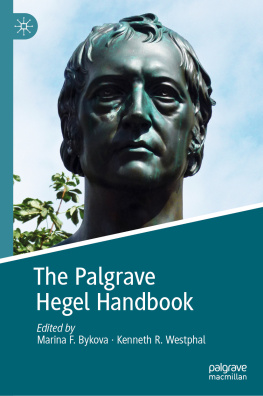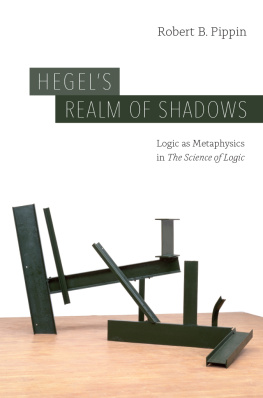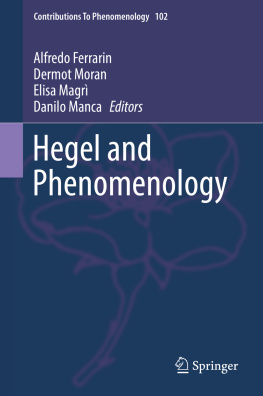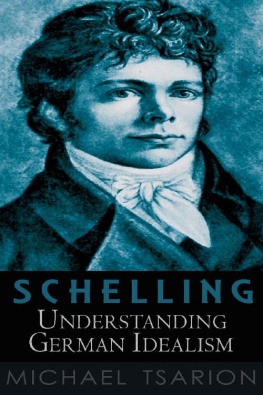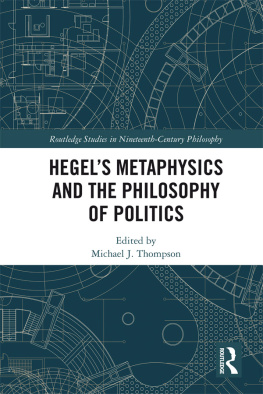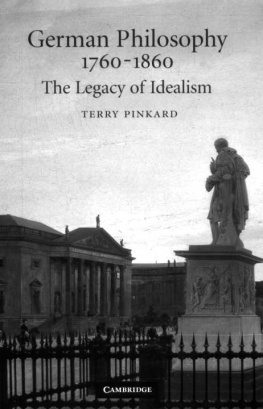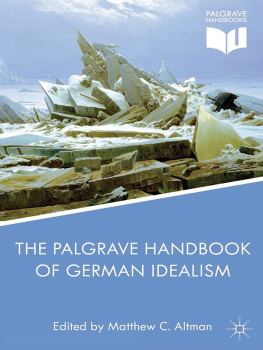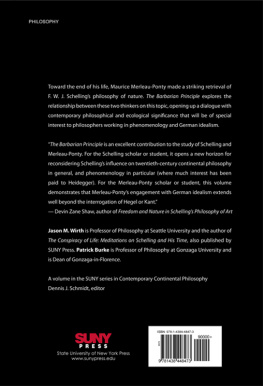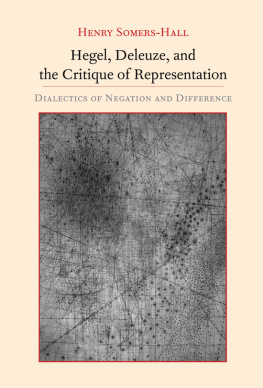Transcendental Ontology
Bloomsbury Studies in Philosophy
Series Editor: James Fieser, University of Tennessee at Martin, USA
Bloomsbury Studies in Philosophy is a major monograph series from Bloomsbury. The series features first-class scholarly research monographs across the whole field of philosophy. Each work makes a major contribution to the field of philosophical research.
Analytic Philosophy: The History of an Illusion, Aaron Preston
Augustine and Roman Virtue, Brian Harding
The Challenge of Relativism, Patrick Phillips
Demands of Taste in Kants Aesthetics, Brent Kalar
Descartes and the Metaphysics of Human Nature, Justin Skirry
Descartes Theory of Ideas, David Clemenson
Duns Scotus and the Problem of Universals, Todd Bates
Freedom and Nature in Schellings Philosophy of Art, Devin Zane Shaw
Hegels Philosophy of Language, Jim Vernon
Hegels Philosophy of Right, David James
Hegels Theory of Recognition, Sybol S. C. Anderson
The History of Intentionality, Ryan Hickerson
Kantian Deeds, Henrik Jker Bjerre
Kierkegaard, Metaphysics and Political Theory, Alison Assiter
Kierkegaards Analysis of Radical Evil, David A. Roberts
Metaphysics and the End of Philosophy, H. O. Mounce
Nietzsche and the Greeks, Dale Wilkerson
Origins of Analytic Philosophy, Delbert Reed
Philosophy of Miracles, David Corner
Platonism, Music and the Listeners Share, Christopher Norris
Poppers Theory of Science, Carlos Garcia
Postanalytic and Metacontinental, edited by James Williams, Jack Reynolds, James Chase, and Ed Mares
Rationality and Feminist Philosophy, Deborah K. Heikes
Re-thinking the Cogito, Christopher Norris
Role of God in Spinozas Metaphysics, Sherry Deveaux
Rousseau and Radical Democracy, Kevin Inston
Rousseau and the Ethics of Virtue, James Delaney
Rousseaus Theory of Freedom, Matthew Simpson
Spinoza and the Stoics, Firmin DeBrabander
Spinozas Radical Cartesian Mind, Tammy Nyden-Bullock
St. Augustine and the Theory of Just War, John Mark Mattox
Transcendental Ontology
Essays in German Idealism
Markus Gabriel

Bloomsbury Academic
An imprint of Bloomsbury Publishing Plc
50 Bedford Square | 1385 Broadway |
London | New York |
WC1B 3DP | NY 10018 |
UK | USA |
www.bloomsbury.com
Bloomsbury is a registered trade mark of Bloomsbury Publishing Plc
Markus Gabriel, 2011
Markus Gabriel has asserted his right under the Copyright,
Designs and Patents Act, 1988, to be identified as Author of this work.
All rights reserved. No part of this publication may be reproduced or transmitted in any form or by any means, electronic or mechanical, including photocopying, recording, or any information storage or retrieval system, without prior permission in writing from the publishers.
No responsibility for loss caused to any individual or organization acting on or refraining from action as a result of the material in this publication can be accepted by Bloomsbury or the author.
British Library Cataloguing-in-Publication Data
A catalogue record for this book is available from the British Library.
ISBN: HB: 978-1-4411-1629-1
PB: 978-0-5670-5780-8
ePUB: 978-1-4411-0823-4
ePDF: 978-1-4411-2741-9
Library of Congress Cataloging-in-Publication Data
A catalog record for this book is available from the Library of Congress
Contents
Acknowledgments
This book contains a variety of essays on German or post-Kantian idealism. Earlier versions of some of these essays have been published in German. I would like to thank Tom Krell for his help with the translation of large parts of these original essays into English, and Julian Ernst, Jens Rometsch, and Francey Russell for their critical comments on the translated essays, which led me to significantly change and unify them into a book. I would also like to thank Matt Congdon for his help with editing the manuscript and his critical comments. In addition to this, I thank all participants in the First Annual International Summer School in German Philosophy that was held on the topic of Transcendental Ontology in Bonn in June 2010. Particular thanks go to G. Anthony Bruno, Jon Burmeister, Karen Ng, Andreja Novakovic, Sebastian Ostritsch, Daniel Smyth, Clayton Shoppa, and Sebastian Stein for discussions during their stay in Germany. As always, I am deeply indebted to Wolfram Hogrebe, discussions with whom have consistently inspired me over the last ten years.
Introduction: Transcendental Ontology in Context
According to a widespread standard picture, modern philosophy is defined by an alienation of thought from being. While ancient metaphysics set out to grasp being as such, modern philosophy instead humbly investigates our access to being. In modernity, being turns into the external world, made up of objects suitable for an investigation more geometrico. Mind (thought) and world (being) come to be opposed as a result of a general (methodical) skepticism. Given that from this skeptical vantage point our access to the world appears such that it potentially distances us from what there is (being), it is at least prudent to secure the access to what there is prior to the somewhat nave attempt to grasp being. Modern philosophy thus seems to be defined as epistemology, which replaces ontology as prima philosophia.
To a certain extent, this picture corresponds to the current state of the art in analytic philosophy. Analytic philosophy still talks about mind and world as if there were an epistemic realm of minds on the one hand, and on the other, an ontological realm of things/facts, defined primarily through its opposition to mind as mind-independent reality. Despite various attempts to overcome this Cartesian dualism, analytic philosophy (in its narrow academic sense) has never dared to question its notion of the world. Of course, in particular the Harvard school (Quine, Goodman, and Putnam)and to some degree also Davidsonhave undermined the methodological Cartesianism of analytic philosophy in such a way that one has referred to them as post-analytic philosophers. However, as Rorty correctly pointed out, they nevertheless remain within the framework of modern philosophy as epistemology, investigating the nature of the conceptual structure of our access to what there is.
Continental philosophy, on the other hand (a label even fuzzier than that of analytic philosophy), and in particular some of the most prominent developments in twentieth and twenty-first century French and German philosophy, can be seen as a rediscovery of being. This is obvious if we look at phenomenologys attempt to overcome the implicit Cartesianism of modern epistemology. In this sense, Heidegger has argued against Husserls methodological solipsism in favor of a notion of Being as the temporality of Daseins constitutive relationship with its own finitude. This led him to a new attempt to rethink the concept of the world both in Being and Time and in other writings. Most recently, Alain Badiou has developed his own ontology on the basis of a reconsideration of the relation between Being and the necessarily nonexistent whole, to name but one example.
Next page
